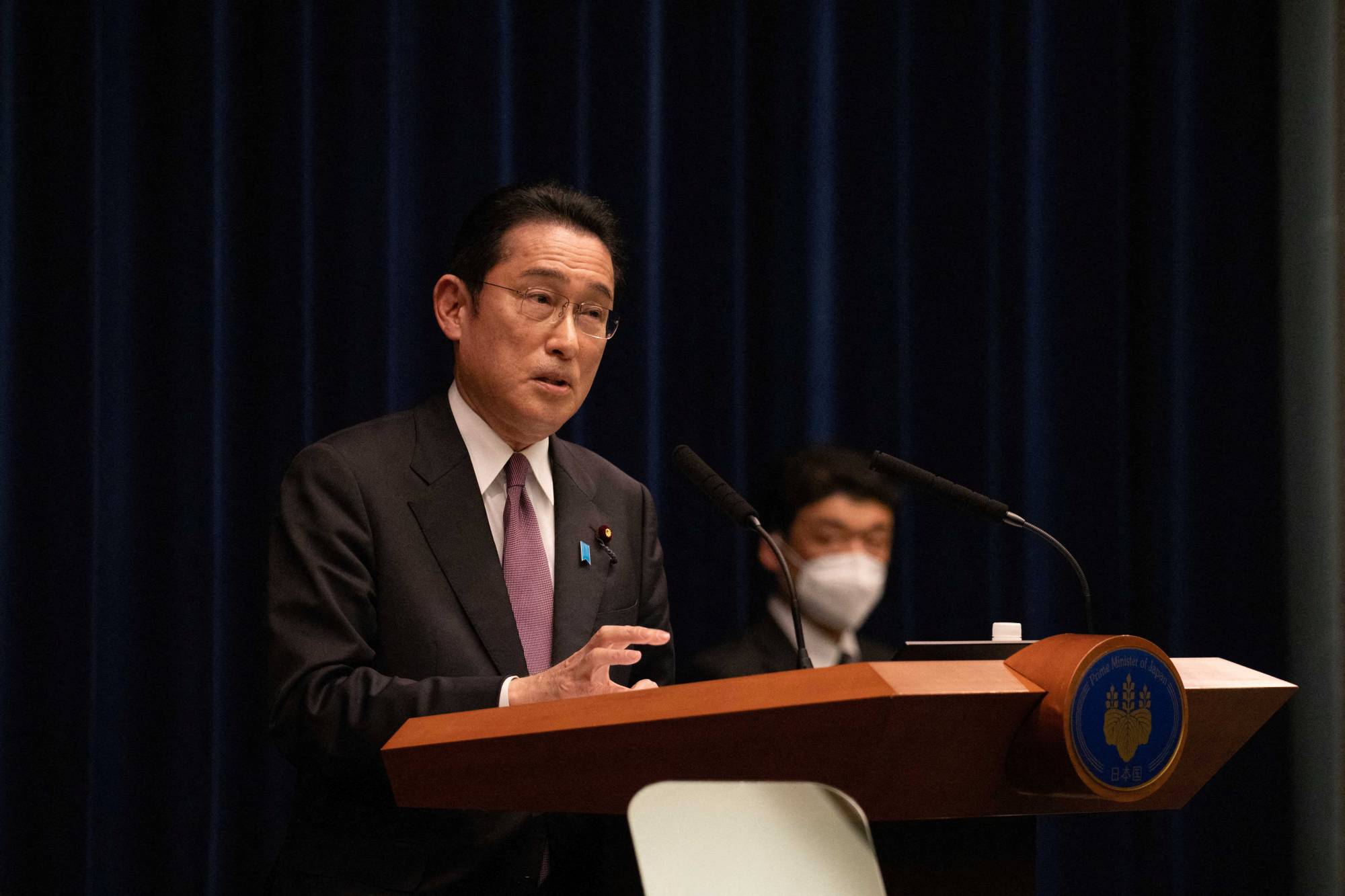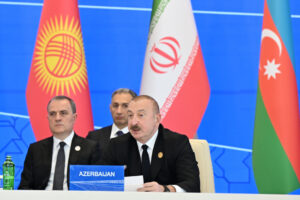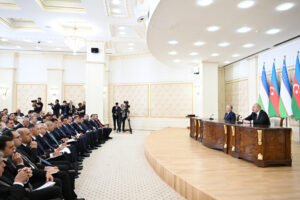Tokyo, 29 March, /AJMEDIA
Japanese Prime Minister Fumio Kishida said Monday his government will compile an additional economic package by the end of April to soften the impact of rising crude oil, food and other prices and ensure a recovery from the COVID-19 pandemic.
The yen’s depreciation is posing a challenge to policymakers in resource-poor Japan, as it inflates import costs and pressures households. Despite a verbal warning by Japan’s top government spokesman against “rapid” currency moves, the U.S. dollar continued its ascent on Monday to break the 125 yen threshold for the first time since 2015.
“We are entering a critical phase in reviving an economy damaged by COVID-19,” Kishida told a session of the House of Councillors, adding that he will instruct his ministers to draw up a new package on Tuesday.
“We must take steps with agility to ensure a recovery in economic and social activities from the pandemic and address the impact of surging crude oil and other prices due to the situation in Ukraine,”
Calls have grown within the ruling coalition for the government to take further steps to ease the pain increasingly felt by Japanese consumers, with the yen’s recent weakness magnifying the impact by raising import costs.
The envisaged economic package would come ahead of an upper house election likely to be held in July, when voters will deliver a verdict on Kishida’s handling of the economy that he said has been hit by a “double whammy” of COVID-19 and the Ukrainian crisis.
Japan’s relatively slow economic recovery and low inflation have bolstered the case for the Bank of Japan to keep its monetary easing for an extended period, in sharp contrast to the U.S. Federal Reserve, which has apparently entered a rate hike cycle to fight inflation.
The divergent policy paths have weakened the yen against the dollar, with the BOJ’s rare moves to step into the bond markets to keep 10-year Japanese government bond yields from rising above its implicit upper limit.
“Stability in the currency markets is important and rapid movements are not desirable,” Chief Cabinet Secretary Hirokazu Matsuno said at a regular press conference Monday.
“We will closely watch developments in currency markets, including the yen’s recent depreciation, and their impact on the economy,” Matsuno said.
A soft yen is a boon to Japanese exporters as their profits are boosted when repatriated, while it means higher costs for import-reliant companies and consumers. BOJ Governor Haruhiko Kuroda has said a weak yen is positive for the economy.
Japan’s economic recovery remains shaky. It was only last week that the nation became free of anti-virus restrictions for the first time since early January after a quasi-state of emergency ended on March 21 in 18 prefectures including Tokyo and Osaka.
As Japan has enacted a record 107.60 trillion yen ($874 billion) budget for the new fiscal year from April, Kishida said the first priority is to execute the spending plan and tap the remaining reserve funds set aside for emergency spending.
Kishida announced last week an extension of subsidies for oil wholesalers to drive down retail prices, by one month to the end of April.
Russia’s invasion of Ukraine has heightened geopolitical risks and raised supply concerns, sending crude oil and other commodities sharply higher to the detriment of the Japanese economy.
Komeito, the junior coalition partner of the Liberal Democratic Party, is urging the government to draft a supplementary budget for fiscal 2022 to fund the to-be-compiled package. The LDP is set to start discussion on specifics that should go into the package on Wednesday.
Key items likely to be discussed in the coming weeks include a plan to hand out 5,000 yen per pensioner and the reactivation of a provision that would allow for a temporary cut in gasoline taxes amid surging crude oil prices.
“We will consider whether the 5,000-yen distribution is truly necessary,” Kishida told the parliamentary session.
The handout plan has drawn criticism from opposition party lawmakers who see it as an attempt to woo senior voters ahead of the election.
The idea being floated within the LDP-Komeito coalition is to help people whose monthly public pension benefits are set to fall by 0.4 percent starting in April from a year earlier, due to a change made by factoring in price and income situations.









































